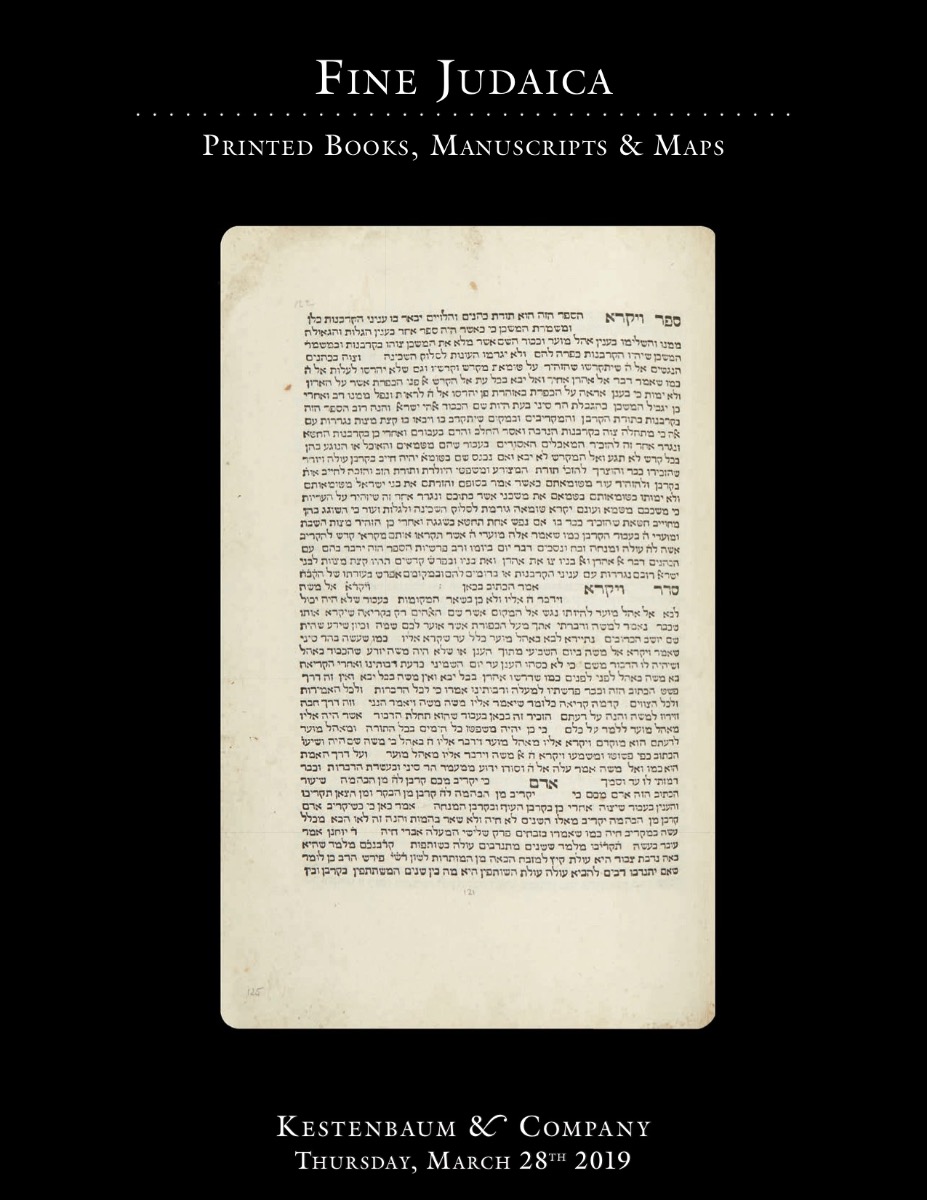Four Autograph Manuscripts. Author copy-books of original writings.

AUCTION 80 |
Thursday, March 28th,
2019 at 1:00 PM
The Valmadonna Trust Library: Further Selections from the Historic Collection. * Hebrew Printing in America. * Graphic & Ceremonial Art
Lot 93
AGUILLAR, GRACE
Four Autograph Manuscripts. Author copy-books of original writings.
(England): 1840’s
Est: $3,000 - $5,000
Grace Aguilar (1816-1847) did not live long, but her literary impact was far-reaching. As a young lady of unusual talents, her writings found an early champion in Isaac Leeser, who published her in early issues of his Occident. Meanwhile, she found acclaim in her native England, where her words could be read frequently in the Jewish Chronicle. Her short pieces and novels won her a broad audience with the general public. Among other themes, Aguilar wrote on Jewish women — a quite new literary topic. The quality and depth of her writing was a particular inspiration to young women.
After her passing, an admirer submitted an Impromptu Elegiac Acrostic (on her name) to the Jewish Chronicle, two lines of which read: “About her bright but mild religion shone/ Casting a genial warmth through apathetic frost.” (JC, Oct. 22, 1847, p. 283.) For the time and place this was high praise indeed. The Occident sounded a note of more American emotion: Aguilar’s death “will send a thrill of pain through the hearts of nearly all our readers.” (Occ. 5:47, November 1847, p. 47).
